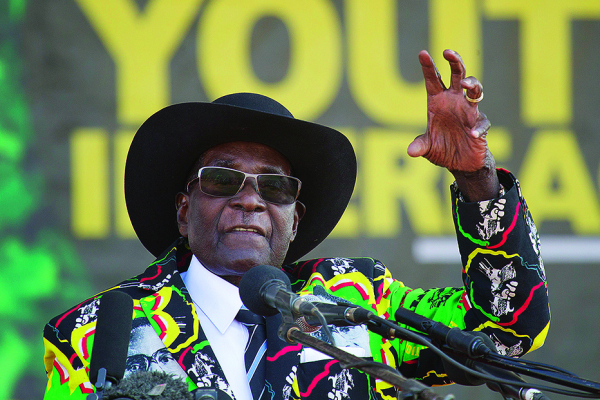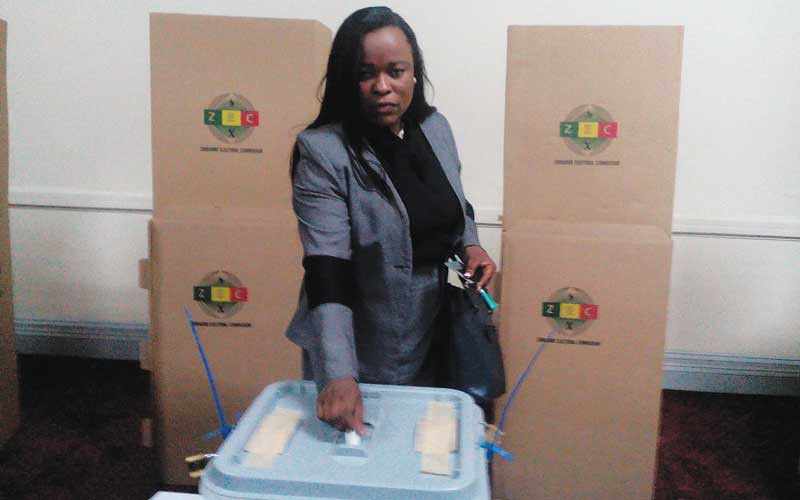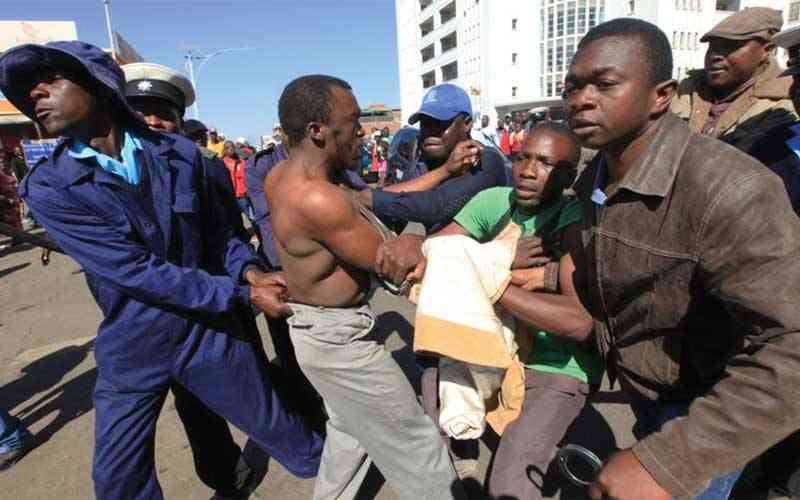
ZANU PF and MDCs have indicated that they want to give themselves monopoly over political power in Zimbabwe. Recently, I felt bad when I saw some people chanting the Ngaapinde Hake Mukomana mantra.
Why don’t we learn that hero-worshiping a person destroys a country and creates a dictatorship that can last for years. We create our own dictators, so let us not blame the politicians. We are more interested in giving power to the principals and not to the masses.
Cry our beloved country. We do not need demigods in Zimbabwe, but the socio-economic transformation which was promised before, during and after the liberation struggle. Let us stop hero-worshipping people. Too much power makes a person susceptible to corruption.
Lord Acton, a British historian wrote that: “Power tends to corrupt, absolute power corrupts absolutely”.
Of late, I heard the MDC Alliance on the CHASE programme saying it’s the only real opposition political party in the country. It calls all other political parties proxies of Zanu PF. Why try to belittle other political parties and cry foul when it feels that Zanu PF has been unfair? The MDC Alliance exhibits selfish tendencies.
It has already started to show dictatorial tendencies even before it gets into power. Zimbabweans must not create dictators for the third time and then cry foul.
A monopoly of power centred around MDC Alliance leader Nelson Chamisa and President Emmerson Mnangagwa means that sovereignty is for the principals only.
Good politics is one which confers sovereignty to all Zimbabweans and not to the principals. Let us all register to vote against the principals in 2023. Vote FAS 2023.
- Chamisa under fire over US$120K donation
- Mavhunga puts DeMbare into Chibuku quarterfinals
- Pension funds bet on Cabora Bassa oilfields
- Councils defy govt fire tender directive
Keep Reading
What is independence to us fellow Zimbabweans? On September 12, 1890, the British Union Jack flag was hoisted in Salisbury, marking the official politico-economic colonisation of Zimbabwe.
On April 18, 1980, the Union Jack was taken down, marking the end of British colonialism. We celebrated that year, thinking that the sacrifices that had been made would undo the discrimination, torture, suffering, impoverishment and dehumanisation of Zimbabweans. We were wrong. Who knew that 41 years later, things would be worse?
Who knew that among the “comrades”, some would personalise the country’s independence just to be in power at the expense of the dreams that had fashioned and coloured the desire for freedom? We were fooled.-Paul Dzimano
Let our youth register to vote en masse
ON October 15, 2021, Vendors Initiative for Social and Economic Transformation (Viset) launched its informal sector voter education campaign dubbed the Enhanced Informal Sector Voter Mobilisation and Advocacy Initiative (EISeVOMA).
EISeVOMA seeks to enhance informed young informal traders and informal traders living with disability’s participation in the upcoming by-elections and 2023 harmonised elections in all the major towns and cities in Zimbabwe.
The launch of the campaign coincided with the training of over 25 young people drawn from Viset leadership structures known as SOCHAMPs for Harare.
The training was conducted in partnership with the Election Resource Centre (ERC).
In delivering his opening remarks, Viset executive director Samuel Wadzai indicated that EISeVOMA will address the challenge of low participation by young informal traders and informal traders with disability in governance processes in general, and the on-going voter registration process in particular.
He stressed that Viset will work with the Zimbabwe Electoral Commission and it is anticipated that the EISeVOMA initiative will contribute to the mobilisation of youths, marginalised groups and people with disability in all the major cities and towns of Zimbabwe to register to vote and ensure that their names are on the voters register during the inspection period.
As the name suggests, the EISeVOMA has the twin task of educating and mobilising informal traders in the selected areas to participate in electoral processes, with a specific aim of getting young and disabled informal traders registered for the upcoming by-elections and the 2023 harmonised elections.
It aims to increase knowledge on electoral processes (voter education) especially on boundary delimitation processes and the number of young informal traders registering as voters.
During the training session for the SOCHAMPs, Solomon Bobosibunu, who was representing ERC, highlighted critical aspects of voter education such as, aims of voter education, timing for voter education, methods of voter education, standard voter education messages to mention a few.
He highlighted that traditional voter education aims to create a climate of knowledgeable participation by all potential voters in a forthcoming election. He said it also sought to enable potential voters to cast their votes with confidence.
He concluded by saying while provision of voter information is certainly the responsibility of the electoral authority, voter education is the responsibility of both of the electoral authority and civil society. –Viset information
Beam programme ‘killing’ schools
GOVERNMENT’s failure to assist disadvantaged children timeously is making schools unable to cater for pupils’ needs as it pays the fees when the money has lost value. In some instances it completely fails to pay. For example, some schools did not get the money for last year.
The Basic Education Assistance Module (Beam) programme is a noble idea as not all children come from financially sound families. But if not properly managed, it can disadvantage schools big time.
The government must pay the fees in time before the money loses value. This enables schools to take care of their day-to-day requirements.
In Zimbabwe, the majority of schools survive on fees. Thus if government does not pay school fees for pupils on the Beam programme, most schools will be financially hamstrung.
Government must pay for its adopted children instead of pretending to be a good Samaritan when its actions are killing the operations of schools. –Isaac Mupinyuri











